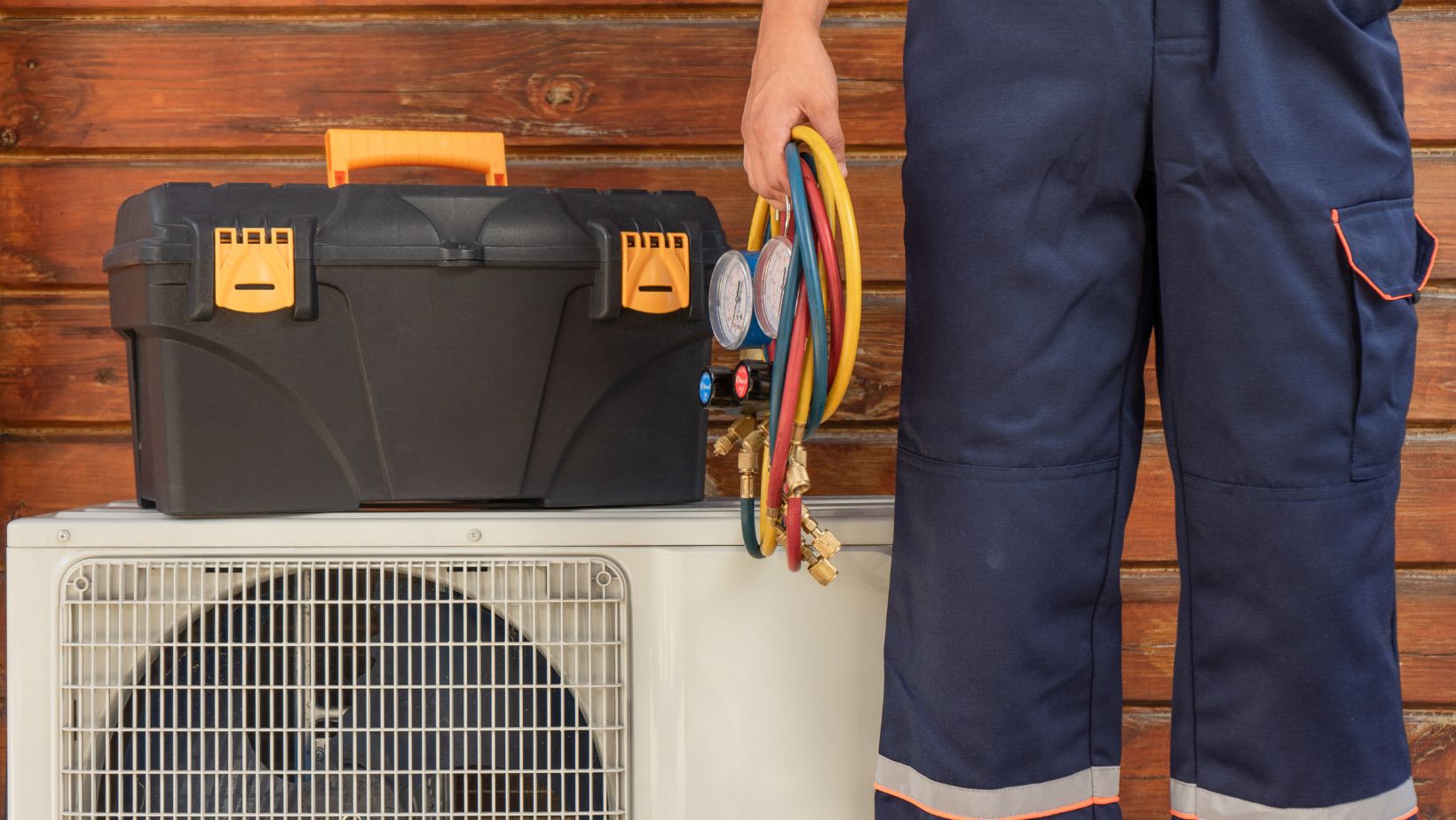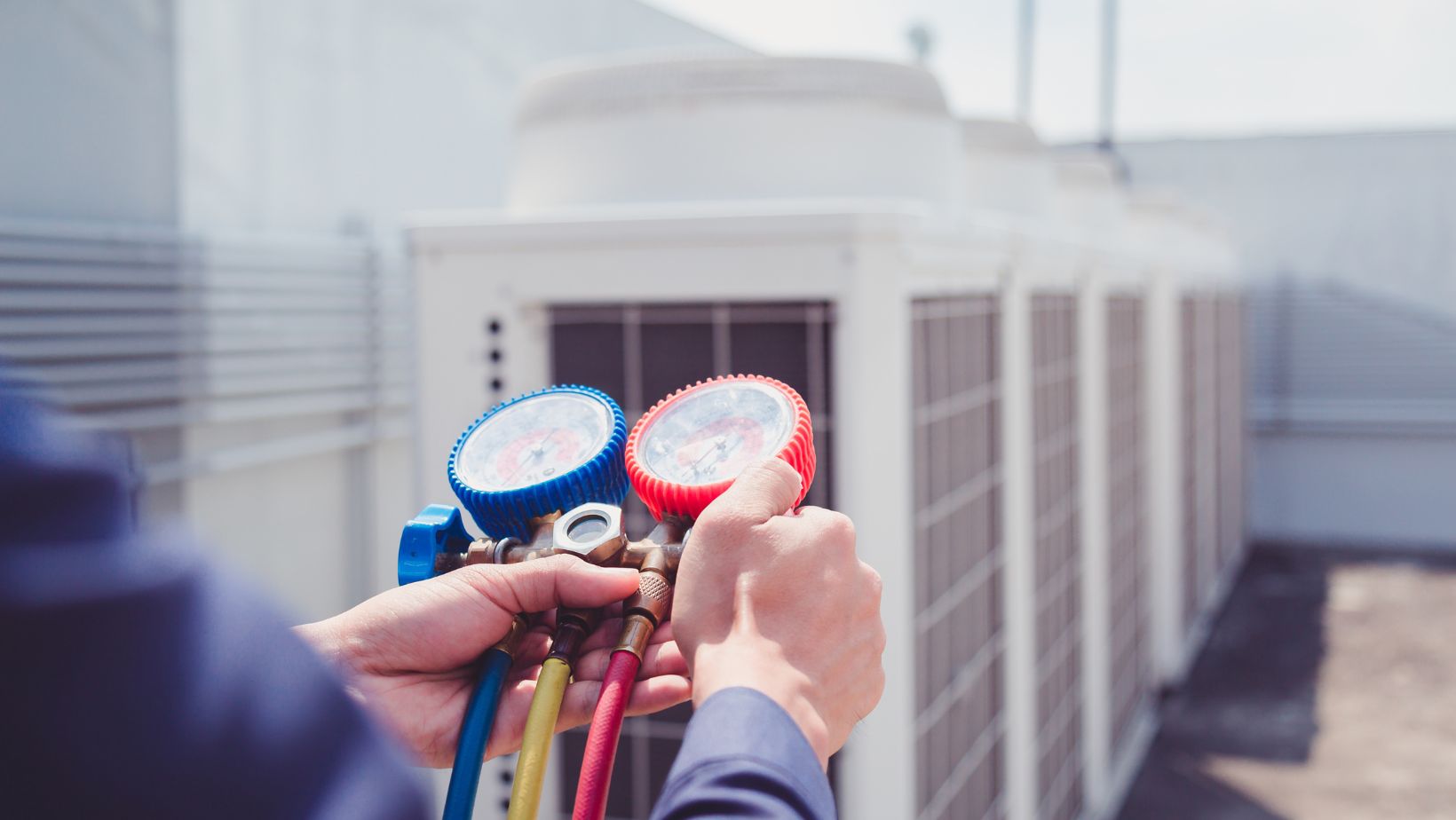Table of Contents
ToggleAir Conditioner For Garage
Looking for a way to keep your garage cool and comfortable during the hot summer months? An air conditioner for your garage might be just what you need. Whether you use your garage as a workshop, storage space, or even a home gym, having the right temperature can maximize its functionality.
An air conditioner designed specifically for garages offers several benefits. Firstly, it helps regulate the temperature by providing cool air circulation, creating a more pleasant work environment. Additionally, it can help prevent damage to items stored in the garage that may be sensitive to extreme heat or humidity.
When choosing an air conditioner for your garage, consider size, cooling capacity, and energy efficiency. Portable units are popular options as they provide flexibility and can easily be moved around. Wall-mounted units are another option that offers permanent cooling solutions with minimal installation required.
So why suffer through sweltering temperatures in your garage when practical solutions are available? Invest in an air conditioner designed specifically for garages and enjoy a cooler space that meets your needs year-round. Choosing the Right Size Air Conditioner for Your Garage
When finding the perfect air conditioner for your garage, size matters. The right size unit is crucial for optimal cooling performance and energy efficiency. Here are a few key factors to consider when choosing the right size air conditioner for your garage:
- Evaluate the size of your garage: Measure the square footage of your garage to determine its size. This will help you choose the cooling capacity needed for efficient and effective cooling.
- Consider insulation: Take into account the level of insulation in your garage. Well-insulated garages require less cooling power compared to those with poor insulation. Properly insulated garages can retain cool air more efficiently, reducing strain on your air conditioner.
- Assess heat sources: Identify any heat sources in your garage that could affect its temperature, such as appliances, machinery, or direct sunlight exposure. These factors will impact how much cooling power you’ll need from your air conditioner.
- Calculate BTU requirements: BTU (British Thermal Unit) is a measurement used to define an air conditioner’s cooling capacity. To estimate the required BTU for your garage, use this simple formula:
- For well-insulated garages: Multiply the square footage by 20.
- For poorly insulated garages: Multiply by 30 instead.
- Seek expert advice: If you’re unsure about calculating BTUs or determining the right size unit for your specific needs, consult an HVAC professional who can assess your garage and provide personalized recommendations.
Remember that getting an oversized or undersized air conditioner can lead to inefficiency and discomfort in your garage space. A large unit may cycle on and off frequently without adequately dehumidifying or removing heat from the area, while an undersized team may struggle to cool effectively.

Installing the Air Conditioner in Your Garage
When creating a comfortable environment in your garage, installing an air conditioner can make a significant difference. A cool, controlled space allows you to work more efficiently and protects your tools and equipment from extreme temperatures.
Here are some essential steps to guide you through the process of installing an air conditioner in your garage:
- Choose the Right Air Conditioner: Before diving into installation, select an air conditioner that suits the size and requirements of your garage. Consider factors such as cooling capacity, energy efficiency, noise level, and compatibility with your power supply.
- Evaluate Ventilation Needs: Proper ventilation is crucial for efficient cooling in any space, including garages. Ensure that your garage has adequate airflow by assessing existing windows or vents. If needed, consider installing additional vents or fans to enhance circulation.
- Find the Ideal Location: The optimal location for your air conditioner is key to its effectiveness. Look for a spot where it can provide even distribution of cool air throughout the entire garage without obstructions like shelving units or workbenches blocking airflow.
Final Thoughts
By considering factors like square footage, insulation quality, heat sources and consulting with professionals if needed, you’ll be better equipped to choose the right size air conditioner for your garage. Stay cool and comfortable while working on your projects!





